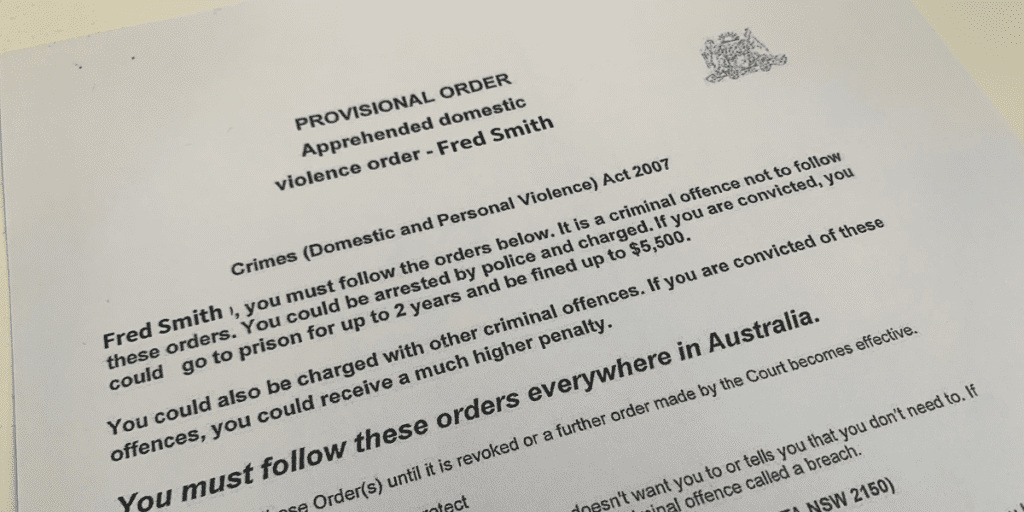What is an AVO?
An AVO, or Apprehended Violence Order, is an order made by the court for the protection of a person or persons from the Defendant. These include several standard conditions which, if the order is made by the court, the Defendant must abide by. They usually last for a period of 2 years.
It is important to note that while having an AVO against you is not a criminal offence and will not appear on your record, breaching an AVO is a criminal offence, and can be punishable by up to 2 years imprisonment (s14 of Crimes (Domestic and Personal Violence) Act 2007).
An application for an AVO can be made by
- Any person who is in need of protection from another person (PINOP), OR
- The Police
There are several types of AVOs, which include:
- ADVOs (Apprehended Domestic Violence Orders): These apply to a person who has or has had a domestic relationship with the Defendant, or multiple people where one person has or has had a domestic relationship with the Defendant.
- APVOs (Apprehended Personal Violence Orders): These apply to any person who has not had a domestic relationship with the Defendant.
What are my options if there is an AVO application against me?
You will be served with the application for the AVO and ordered to attend court so the police and the court can hear your position on the AVO.
We highly recommend contacting Brady and Associates Lawyers before attending court so we can best assist you on how to navigate these complex matters.
There is a complex process mandated for many of these matters which can be very stressful to navigate on your own, so contact a specialist AVO Lawyer today.
At Court, you can either:
What are my options if I am the protected person in an AVO, and I don’t want it in place?
An application to vary or revoke an AVO can be filed with the Local Court. To vary or revoke either a final/interim or Provisional order requires the preparation of written material that is relied upon at the hearing. Sometimes, an outcome can be negotiated. Other times, a hearing is necessary. Brady and Associates Lawyers have a high success rate with these applications, including by negotiating with the police outside of court to obtain a favourable result for you.
It is important that you do not approach the police before speaking to legal representatives.
How does the Court decide whether to make the AVO?
Per sections 16 & 19 of the Crimes (Domestic and Personal Violence) Act 2007, the court needs to be satisfied on the balance of probabilities that the person has reasonable grounds to fear and in fact fears conduct which involves the commission of violence, intimidation, or stalking. This conduct needs to be sufficient to warrant the making of the order.
Comparatively to the rest of the Criminal justice system, this is a low burden of proof needed to make the order, and means that you will require skilled solicitors to present your case in opposing the making of the AVO. Contact Brady and Associates to appear on your behalf at these court appearances to achieve the best result.
What happens if I breach an AVO against me?
You will be charged by the police for the offence of Contravene AVO under s14 of the Crimes (Domestic and Personal Violence) Act 2007. This carries a maximum penalty of 2 years imprisonment or a $5,500 fine. The court will require you to enter a plea of guilty or not guilty on the first court occasion. We strongly urge you to contact Brady and Associates Lawyers before attending court and entering a plea. We have 30 years of experience defending our clients who have been charged with this offence.
Whatever your role is in AVO proceedings, the team at Brady and Associates Lawyers can help you. We have 30 years of experience dealing with AVO matters and can get you the best result possible at a modest price. Contact us today by emailing admin@bradylegal.com.au or calling us on 9545 3273.
Author: Chris Breen

